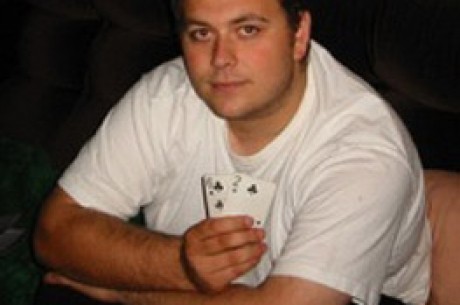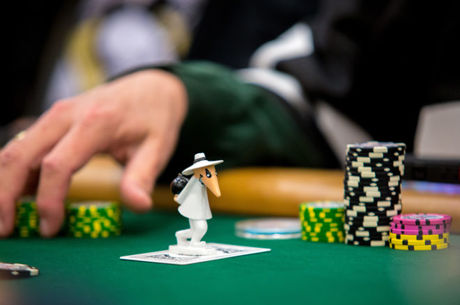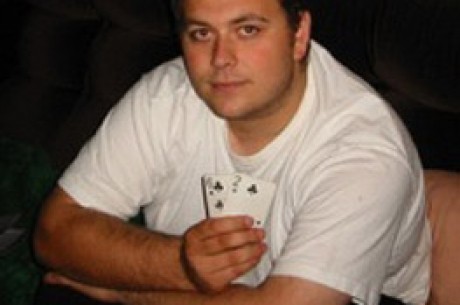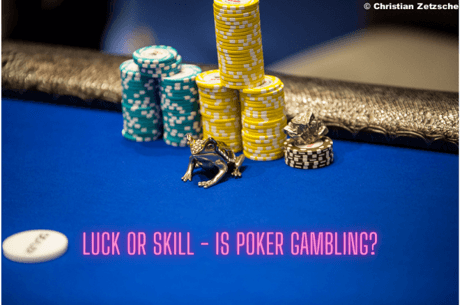Betting the Flop with Uniproved A-K
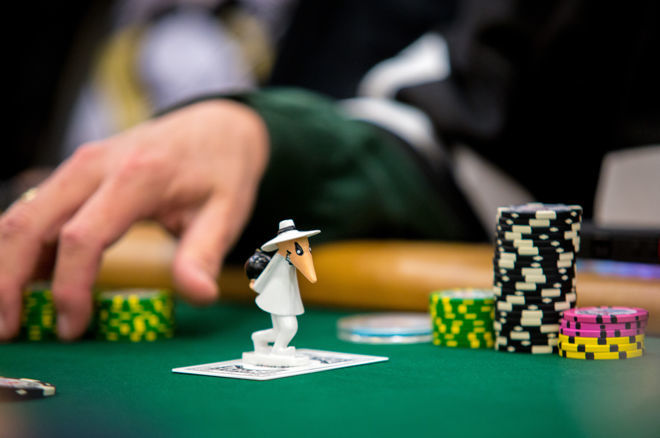
Ok...You're at your favourite holdem game. You've settled in well. Picked up a small pot a few hands early. Made a good sensible laydown a few hands before that. You have you are playing close to your A-Game. At last: A-K. Right - big hand calls for a raise before the flop. You raise and three players call your raise and take the pot. Out it comes: J-9-7. The two players before you check, one opponent folds and the other two call. The turn is 6. Both players check to you again. What do you do? I find that most players who bet in this spot are:
- Deliberately putting their opponents on incorrect hands so they can justify a bet. They convince themselves that their opponents have A-10 and K-Q respectively.
- Think they can push their opponents off their hand - giving them credit for a low pocket pair or maybe a middle pair.
- They know full well that they are behind, but believe that they should keep betting at the pot. The moment they check, they know their opponents will come out betting on the flop with just about anything.
- They are on tilt.
- They are otherwise kiddin' themselves.
Many "pros" may disagree with me. Many would say that, if you're a tight player and everyone is playing good poker, they will give you credit for a high pocket pair on the turn if you bet.
I beg to differ for two reasons. First, there are loose callers in almost every game I play. Why should I give them money when I'm probably behind? Second, good players will hit something like middle pair on the flop and (correctly) put you on AK. As such, they call you the whole way. Even better players may raise you on the turn with middle pair and put you in a tough spot. I usually find a couple of good players at most tables I sit on.
As a result, I think that you should take the above two considerations into account when playing AK. If two opponents call your pre-flop raise (with AK) and the flop comes something like J-9-7, ask yourself about the quality of these opponents. If they are loose callers, who would probably call you all the way with anything from a small pocket pair or better, don't bother betting. You are throwing money away. When you hit an ace or a king, they will pay you off handsomely. If you bet the whole way on the occasions that you don't improve and are called on most of those occasions, you are giving money back to them when there is no need to. So play very 'obviously' and up front when you are against weak, loose or poor players.
If you are up against a good tight player, your strategy is different. First look at the relative positions and sequence of pre-flop action. If I raised before the flop and the good tight player was behind me (therefore called my raise cold before the flop) I usually think that he has a hand like AQ, AJ, maybe A-10 suited or a pocket pair below Jacks. If the good tight player had already entered the pot before the flop and I raised behind them, it is more difficult to immediately put them on a hand. Could range from K-J to 5-5 to J-10.
If the flop is a pile of rags and he checks to me, I will usually assume that I'm in front. If he check-raises me or bets into me (when I have position on him), I will usually try to give it up right there and then. You should bet most of the time on the flop when you're up against good tight players. Unfortunately, you will have to sacrifice a bet on the flop to find out where you are.
If the good tight player calls on the flop, it is worth checking the turn (if it doesn't improve you). If he checks to you on the turn, check right behind - you may have avoided a check-raise? If he bets into you on the turn, muck your AK. If he checks to you or checks behind you on the turn, the river can be a bit tricky. Sometimes, a good tight player will bet the river on the assumption that you have AK. They don't have anything a lot of the time, but take a chance that you'll fold. Frequently, I've foiled such plays and when I have (ie. induced a bluff), it has stopped them from getting tricky with me on the river in future hands.
A real 'cut and dry' one is the weak tight player (of which there are plenty). With unimproved AK, I'll bet straight into them on the flop with the view of betting the turn and perhaps the river, depending on their body language. But if I bet the turn and they call, I usually figure they'll look me up on river.
One rule that applies no matter who the opponent is: if you have position on an opponent and he bets into you on the flop, you may as well release it right now. Don't be one of those players who reraises the flop in this spot, simple to get fancy with AK. Most of the time, the person who bets into out of position after you raise pre-flop is going to call you down with a better hand.
The other consideration is the texture of the flop. If the flop is 9-9-4, will usually bet an AK and frequently win it right there. That flop would not hit many opponents. Also, if the flop is 2-3-7, I will usually bet and am probably in front. Ironically, this bet usually gets rid of the hands like J-10 (which has a 25% chance of drawing out on AK) and the people who call usually have hands like A-9 (which has only an 11% chance of outdrawing AK). The best situation to be in with AK is to have an opponent calling you with A-x, whether you hit the flop or not.
But if the flop is 7-9-10 or Q-9-8 or 5h-6h-Jd, just accept that it is going to be difficult to push a lot of opponents out of the pot with unimproved AK. In fact, I believe your general approach should be to keep-it-simple-stupid. Bet when you hit the flop (or the flop is low and you believe AK is the best hand), but check when you miss the flop, especially if it is a flop for drawing hands or you are against calling stations.
As a side note, there is an interesting advantage in not routinely betting unimproved AK into any and all opponents. Because you raised pre-flop, they may consider you dangerous and figure that you are going for a check-raise on the flop. Even if they hit top pair on the flop, they may check behind you. Because of this, they may check and give you a free card. It's surprises me how many times I've been given a free card by an opponent who was in front of me on the flop and, low and behold, the turn was an Ace or King.

